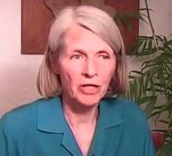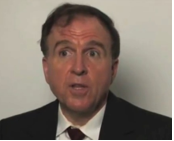| Psychology Experts Speak Out: “Why is the 9/11 Evidence Difficult for Some to Accept?” |
 |
 |
| Written by Dennis P. McMahon, J.D., L.L.M. | |||||||||||||
| Thursday, 19 July 2012 18:04 | |||||||||||||
It’s often difficult for people who are aware of the evidence for the controlled demolition of the WTC skyscrapers to understand why so many Americans are unwilling to rationally discuss this vital information. For over ten years now, 9/11 Truth advocates have been trying to get relatives, friends, and strangers to listen to the undeniable facts that point to the need for a real 9/11 investigation. We often encounter emotional resistance, which poses the question: “Why is the evidence so difficult for so many people to accept?” In the new documentary, “9/11 Explosive Evidence – Experts Speak Out,” AE911Truth petition signers with psychological expertise step forward with answers. Licensed clinical psychologist Robert Hopper, Ph.D., explains: “9/11 Truth challenges some of our most fundamental beliefs about our government and about our country. When beliefs are challenged or when two beliefs are inconsistent, cognitive dissonance is created. 9/11 Truth challenges [our] beliefs that our country protects and keeps us safe and that America is the ‘good guy.’ When this happens, fear and anxiety are created. In response, our psychological defenses kick in [to] protect us from these emotions. Denial, which is probably the most primitive psychological defense, is the one most likely to kick in when our beliefs are challenged.”
As underscored in the film, sometimes the expression of denial includes raw incredulity, as when people make statements like, “I refuse to believe,” or “I don’t want to know the truth.” Others respond, “I’m not sure I want to know. If this is true, down would be up, up would be down, [and] my life would never be the same.” Or, “I refuse to believe that many Americans could be that treasonous.”
“Whenever we say, ‘I refuse to believe,’ we can be sure that the evidence that’s coming our way is not bearable, and that it’s conflicting with our worldview,” observes Fran Shure, M.A., a 20-year licensed professional counselor and psychotherapist. As she thought about all of the most common “closed” responses to an invitation to engage with the 9/11 evidence, she realized that “what is common to every one of them is the emotion of fear. People are afraid of being ostracized, they’re afraid of being alienated, they’re afraid of being shunned. They’re afraid of feeling helpless and vulnerable, and they’re afraid that they won’t be able to handle the feelings that are coming up. They’re afraid of their lives being inconvenienced…of being confused… [and] of psychological deterioration. They’re afraid of feeling helpless and vulnerable.”
To begin to accept the possibility that other groups were involved in 9/11 “is like opening Pandora’s box,” states Robert Hopper. “If you open the lid [and] peek in a little bit, it’s going to challenge some of your fundamental beliefs about the world.” Most people do not welcome such dramatic challenges to their worldview. “If we can think of our worldview as being sort of our mental and emotional home, I think all of us will do just about anything to defend our homes [and] to defend our families,” says Dorothy Lorig, M.A., a counselor with a 16-year practice in re-evaluation counseling. Lorig saw that within herself when her brother initially tried to talk to her about 9/11 Truth. Her response: “Don’t mess with me. Don’t mess with my home, don’t mess with my comfort [level].” But about a week later she read a “well-researched article” by Dr. David Ray Griffin, Ph.D., on the evidence indicating why the official account of 9/11 cannot be true. What was Lorig’s reaction? “I was in my office at the time. I sat there and felt my stomach churning. I thought maybe I was going to be sick. I leaped out of my chair, ran out the door, and took a long walk around the block – around several blocks – and just broke down. I understand now. What was happening was my worldview about my government being in some way my protector – almost like a parent – had been dashed, and it was like being cast out into the wilderness. I think [that this] is the closest way to describe that feeling. I sobbed and I sobbed…and I knew, at some point during the walk, that I was going to have to become active in educating other people about this. For me to retain any sense of integrity, I was going to have to take some action. I couldn’t just let something like this go.” Many 9/11 activists know David Ray Griffin as the pre-eminent author on 9/11, having written ten books on the topic and edited others. Griffin is Professor of Philosophy, Emeritus, at the Claremont School of Theology. He analyzes people’s varied reactions to 9/11 Truth as follows: “You have empirical people who will simply say, ‘Look at the evidence; if it’s convincing, I will change my mind.’ Other people have a paradigm. They say, ‘This is the way the world works, and I’m convinced this is the right way…. 9/11 [Truth] doesn’t fit into that paradigm, so I don’t need to look at the evidence… Griffin also described a third type of people who engage in what he calls “wishful and fearful thinking…. [T]hey simply will not believe something that they fear to be the truth. I’ve found that may be the most powerful factor [for] people [who reject] 9/11 Truth and not even entertain the evidence.”
Part of the reason why people are so fearful is the nature of the event itself. “The horrors of what happened on 9/11 were televised all over the world, and they were in fact televised live,” explains Marti Hopper, Ph.D., a licensed clinical psychologist and trauma victim specialist. “We witnessed the deaths of almost 3,000 of our fellow Americans. We know this had a very severe and traumatic impact on a large majority of the population.”
Trauma specialist Danielle Duperret, Ph.D., concurs with Hopper. “We were confident [before 9/11], we felt secure, and all of a sudden that security collapsed,” she said. People started to be fearful. People didn’t know what to think, and it’s a very, very uncomfortable state to be in. Just like when a computer is overloaded, our minds get overloaded, we can’t handle it anymore, and we shut down. It’s easier to deny it and move on with our lives.” “What some of us will tend to do,” Shure adds, “is deny the evidence that’s coming our way and stick to the original story – the official story – and to try to regain our equilibrium in that way.” Shure offers a better alternative: “Another thing we can do is decide to look at the conflicting evidence, be sincere, be open-minded, look at both sides of the issue, and then make up our own minds about what reality is.”
However, that can be a difficult task for those who see America as infallible. As psychologist Robert Griffin notes, “To be the kind of country that we think we are, we have to face some of the things that are not as we think they are. Thinking that we’re above such things – that it could happen in other countries but it couldn’t happen here – that’s a lack of humility and excessive pride. Not being able to see our dark side or our weaknesses is the most dangerous thing.”
David Ray Griffin (no relation to Robert Griffin) adds, “The observation that pride is one of the basic human flaws is absolutely correct. A feature of American history that makes us particularly liable to this pride is this notion called ‘exceptionalism,’ that America is the exceptional nation…that our leaders are free from the sins that other nations have been troubled by. This has made 9/11 [Truth] particularly difficult for Americans [to understand].” John Freedom, a personal development counselor with masters-level certification, observes that “It doesn’t work to challenge people’s beliefs or merely tell them, ‘I know the truth about 9/11.’ But a good way is to ask open-ended questions and lead them into a dialogue and a discussion about it [with] gentle dialogue and gentle questioning.”
Robert Hopper agrees, saying, “The first thing is to meet people where they’re at.” Experimental psychology professor William Woodward, Ph.D., stresses the need “to work together to expose what happened regardless of where the evidence takes us. That’s what we expect in our state government [and] law enforcement. I think that, by putting science together with the law, we will have a psychological healing around the ‘impossible’ cognition that has been produced [about 9/11].” In contrast to George W. Bush’s infamous warning to never question the official story of 9/11, Robert Griffin states, “We need to understand that questioning is patriotic. Questioning is what we’re supposed to do as citizens. That’s our duty.”
In fact, as Woodward advises, “Healing comes through facing the truth, experiencing it, allowing the feelings to come in. So if there are feelings of fear that perhaps these events were caused by something that we haven’t thought about yet – dark elements within our society for example – we’ll let that come in and explore it. Let the light shine on whatever happened. This will be the most healing process.” Woodward also explains that “reconciliation through the truth is… a deep path to psychological recovery from the myths and lies around which this historic event has been cloaked in the official view.” Reflecting the view of many 9/11 Truth advocates, John Freedom came to the following conclusion: “One thing that has become important for me personally is to educate myself…to take responsibility. There’s that wonderful quote from Mahatma Gandhi where he said that ‘We must be the change that we wish to see in the world.’” Clearly, Gandhi’s pragmatic philosophy is being reflected here at AE911Truth. If you haven’t done so already, get your copy of 9/11: Explosive Evidence – Experts Speak Out and take action! Editor’s note: Look for more insightful commentary from these psychology experts in upcoming issues of The Blueprint, as well as in the bonus DVD, “Meet the Experts,” included in the deluxe edition of Experts Speak Out.
|
 Flickr
Flickr Youtube
Youtube Facebook
Facebook Twitter
Twitter













 Psychologist Robert Hopper, Ph.D., suggests that fear and anxiety are common responses when dealing with the evidence presented by AE911Truth
Psychologist Robert Hopper, Ph.D., suggests that fear and anxiety are common responses when dealing with the evidence presented by AE911Truth Psychologist Fran Shure, M.A., has investigated the disturbing implications of 9/11 for many years, and provides insightful analysis in Experts Speak Out
Psychologist Fran Shure, M.A., has investigated the disturbing implications of 9/11 for many years, and provides insightful analysis in Experts Speak Out It was difficult for psychologist Dorothy Lorig to come to terms with 9/11 Truth, but when she did, she made the decision to take action by educating others
It was difficult for psychologist Dorothy Lorig to come to terms with 9/11 Truth, but when she did, she made the decision to take action by educating others As a trauma victim specialist, Danielle Duperret, Ph.D., provides a unique perspective on the dramatic impact that 9/11 had on the American psyche
As a trauma victim specialist, Danielle Duperret, Ph.D., provides a unique perspective on the dramatic impact that 9/11 had on the American psyche Psychologist Robert Griffin examines the emotional problems people have with accepting the truth of 9/11 and the solutions activists can use to overcome these issues
Psychologist Robert Griffin examines the emotional problems people have with accepting the truth of 9/11 and the solutions activists can use to overcome these issues Philosophy professor and theologian David Ray Griffin, Ph.D., speaks from his experience as one of the foremost experts on 9/11
Philosophy professor and theologian David Ray Griffin, Ph.D., speaks from his experience as one of the foremost experts on 9/11


